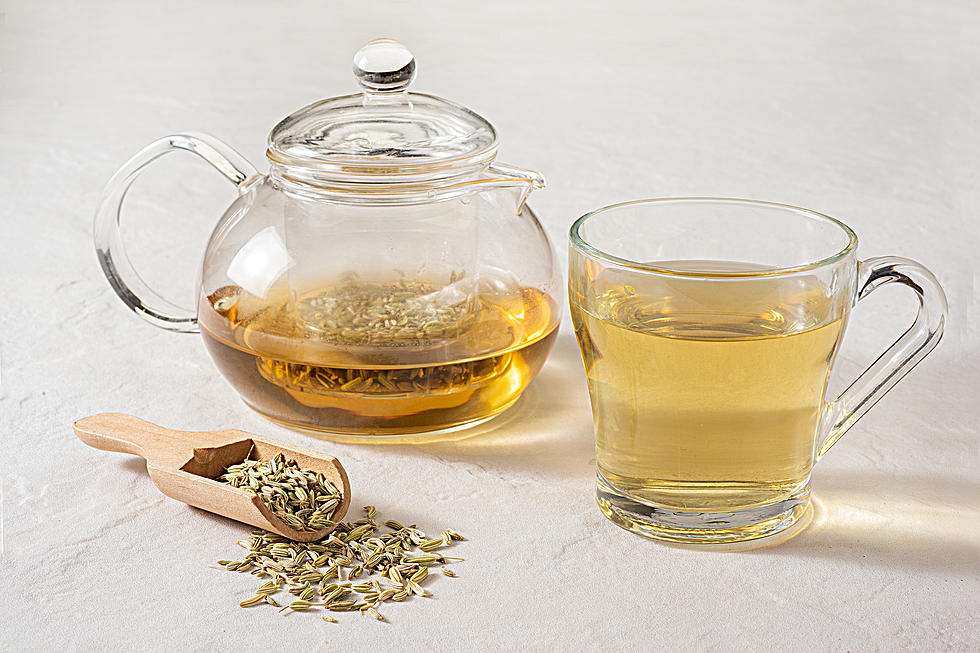
How to Improve Your Mental Health: 5 Tips From a Psychiatrist
When it comes to taking care of yourself, you probably focus on eating healthy, getting exercise, and prioritizing better sleep. But true health stems from taking care of your mental health since total wellbeing springs from your ability to problem-solve, manage stress and be resilient in the face of obstacles. How do you do that? Here are 5 tips for improving your mental health, from a psychiatrist. Read this and make March the month when you hit reset on your total wellbeing.
Start by understanding: What is mental health?
Mental health includes our emotional, psychological, and social well-being, according to the definition the CDC gives it. Mental health affects "how we think, feel, and act. It also helps determine how we handle stress, relate to others, and make healthy choices," the government site tells us. Experiencing mental health lapses and having a diagnosed mental illness are not the same, since you can have periods of being down without having a mood disorder, and people with depression or anxiety can also experience times of feeling fine.
Mental health is integral to physical health since depression increases the risk for conditions like diabetes, heart disease, and stroke, according to the CDC. In the United States, almost half of all adults will experience a mental health condition during their lifetime, according to the National Alliance on Mental Illness, and 1 in 5 Americans will experience a mental illness in a given year. Since the pandemic, Americans experienced higher than usual levels of stress, anxiety, and a sense of "overwhelmedness" and yet we rarely talk about it – or seek the advice and help we need.
How can we recognize that we have an issue, and take the time we need to slow down, practice self-care, and take better care of ourselves, physically and mentally? Dr. Samantha Boardman, a New York-based psychiatrist with the Department of Medicine and the Department of Psychiatry at Weill Cornell Medical Center, has seen this in her practice and is eager to share tips and strategies to help people live their best lives.
She is the author of Everyday Vitality: Turning Stress Into Strength. She offers her best tips on how to be more resilient, cope with daily stress, and how to take care of our mental health, which is actually the same as our health.
If you have a mental health condition contact your health care provider or another mental health professional. If you or someone close to you is having suicidal thoughts, call the National Suicide Prevention Lifeline, anytime, 24 hours a day, at 800-273-8255.
Mental Health Is Health
"Mental health is health, and if you don't take care of your mental health, you can't be healthy," says Dr. Boardman. It can affect anyone, any time, even professional athletes or so-called strong, confident seeming people, and no one's immune. "Last year when Olympian Simone Biles called attention to mental health, and before her, Naomi Osaka wrote an essay for Time Magazine that said: "It's Okay to Not Be Okay," suddenly the rest of us found ourselves nodding in agreement: Yep, I have struggles too. We all do. That's human."
Dr. Boardman welcomed the surfacing of this critical topic, especially as we try to come out of a pandemic that continued to impact the economy, society, and our health, and how we react to the ongoing stress. It's okay to not be okay, is a liberating and healthy thought since it begins a necessary dialogue that can lead to getting healthier, mentally and physically.
When professional athletes withdraw from the competition – even at the highest level of sport– it reminds us that everyone has to hit pause from time to time and say: "I need to no longer pretend that everything is going according to plan." need to say that I'm not in a good place right now. I need support." That's where you begin to get healthier. It starts with hitting reset.
Mental health is not just in your head, It's in your actions and what you are doing, but you have to understand that your intentions are not the same as your actions. In psychiatry we have insight but there is something called insight imperialism since unless you act on those insights it's just in your head.
It's often not the big scary issues that bring us down, explains Dr. Boardman, but the day-to-day issues that cause us the ongoing stress that begins to create a mental health problem. Like the pebble in our shoe, that begins to be unbearable. But you can feel pummeled by the pebbles, Boardman says. "We can climb a mountain but it's the little things: the cat that needs to go to the vet, the fight with a child, the endless to-do list, that leaves us feeling drained, depleted, drowning, or spent."
Here Dr. Boardman gives us five actionable ways to take care of ourselves and create easy strategies that will leave us more in control, calmer, and able to muster our resilience and cope with things that once felt overwhelming. Dr. Samantha Boardman has your Positive Prescription for living life on your terms, and taking care of your mental health, starting today.
5 ways to take better care of our mental health
1. Recognize you're having an issue
If you are not in a mindset or economic situation to be able to slow down, then ask your friends and family for help and support, and then also be willing to listen to their advice. They love you and if they say: "You've taken on too much," let them help you lighten the load.
"We all give such great advice but we rarely follow it," says Boardman. "Go to your support group and ask them if they can help take some of the pressure off. None of us can do it all alone. Tell them what you need. Start by saying: I feel stressed and need more help. Then find resources, such as talk therapy, and meditation. But the first step is acknowledging that something has to change."
"People like people better who are not perfect," Dr. Boardman asserts. "There's a study that shows it only takes 17 seconds of looking at social media to feel worse about ourselves" because the images everyone puts forward are of their perfect lives, homes, events, or perfect vacations, but in fact, she says, it's healthier to "embrace being imperfect. People like imperfect people." Simone Biles is still the Greatest of All Time, but now she is also human, which people love.
2. Practice self-care
Every day is a chance to start over. "People wait for New Year's Day or their birthday or the beginning of the month to make a change or get healthier. They'll say: This year I'm going to start doing yoga! But every morning is a fresh start. Every day, wake up and decide that you are going to take better care of yourself, mentally and physically," the doctor says.
Do the thing that your future self would be proud of. Look back from some future point in time, and it can be just a few hours from now. Were you happy you got out of bed and took that run or went to the pool and did your swim? If so, she says, that's the decision to make.
If you're the kind of person who likes to lie around and dwell on the past or a current problem, ask yourself to shake it off and get outside of your usual behavior pattern. I say to patients, when that happens: "What's the Un-You thing to do?' and do that!"
"It can be as simple as putting on your athletic bra and sneakers and getting out the door to walk before the emails and other to-do's get in the way. Tell yourself this is as important as any other appointment: because it is! You can't understate the importance of prioritizing your mental state."
When you start to practice self-care, whether it's meditation, talk therapy, a morning ritual such as a walk or exercise class, and eating healthier, your brain begins to feel more resilient, and these small practices begin to pay off mentally and physically.
3. Prioritize exercise and getting outside
We underestimate the role of our physical health on mental health. The impact of how much we move or exercise or sleep on our mental health. It was not something that was taught much in medical school. I literally proscribe exercise to my patients. We are all experiencing a lack of getting outside and being in nature.
Those who engage in exercise have fewer mental health days a month and those who engage in sports with others like on a team don't want to let them down. Do what is called "bundling" where you say I am only going to listen to that podcast I love while I'm walking or only watch that TV show on the treadmill, that's reward bundling.
Spending time outside in nature makes us happier, according to, so spending time in the natural world is one of the best ways to maximize well-being. Most of us have Nature Deficit Disorder, but even just walking through the park on your way to an appointment is enough to hit reset on your mood.
"Nature is the antidote to ruminating, and we all get caught in that negative thinking loop, like Groundhog Day, complaining about the same things over and over. When you see that happening, break the pattern," Boardman says. "Instead of calling your same friend to complain about the same topics, take a walk and don't be on your phone, or listening to music, just let the sounds and sights of the natural world fill your brain with positive vibes."
Just 20 minutes outside can boost your mood, broaden thinking and improve memory, according to research. If you can get to the beach, the trail, or the mountains that's great but even if you're stuck in a large city, the park or riverfront will do it. Any amount of time outside is restorative for your mood and health. "I walk everywhere I can," says Dr. Boardman. Just start walking whenever your schedule allows.
4. Close the "intention gap"
"Make decisions your future self will be proud of. What are the decisions you are making every day without being conscious of? How many times do you pour salt on your food without tasting it? Why do we always eat dessert after a meal? Why do we eat popcorn with a movie? All of these things are preprogrammed that we are not aware of.
We often have good intentions, but how do you close the intention action gap? Make it easier to do the thing that you want to do. Leave your sneakers by the door. I have a patient who puts on a jog bra when she gets dressed in the morning, and that way she will go for a run later that day. Make it easier.
"When we feel bad we often reach for the wrong thing or cancel going to the gym. When that happens and you have the urge to reach for the candy, ask yourself: "What's the Un-You thing to do right now? The not-so angel part of me may want to go lie down but I think: What is the Un-You thing to do when I have that propensity. What advice would you give to your friend at that moment? Try to make the decision the future you would be proud of."
There is something called WOOP goals to help you close the intention-action gap
- W is for Wish. What do you WISH to do?
- O stands for outcome. How will you feel when you complete that wish?
- The second O is for Obstacle and what is getting in the way of you doing it.
- P is for the plan. Make a plan to close the intention-action gap.
If your goal is to not look at your phone during dinner with your kids but it's happening night after night, how are you going to accomplish it? Plan to leave your phone in the other room.
We all have a tendency to grab the bag of chips to soothe ourselves, or perhaps it's sweets or other processed junk food. But your brain craves healthy foods that are high in Omega-3 fatty acids like walnuts, seeds, and avocados, which are full of the good kind of fat, in the form of alpha-linolenic acid. "I snack on nut butter and apple, and I love nuts," says Dr. Boardman. W
When you think about what your brain needs, it's healthy whole foods that will help reset your mood and keep you from experiencing highs (from sugar) and lows (when the sugar wears off).
Read More: 4 Foods Proven to Improve Your Mental Health
The best foods to improve your mood are full of fiber, such as vegetables, leafy greens, legumes, fruit, nuts, and seeds. High-fiber foods come with antioxidants, vitamins, and minerals, and plenty of fiber to feed your healthy gut microbiome and send signals to the brain that nutrients are readily available, which is like saying you are taking care of yourself and to feel good about that.
"What would you tell a friend? We never take our own advice. But be the expert. Studies say if we teach it to others, how to do something, we feel more mastery over it," Boardman explains. "And If you splurge, or eat a treat, tell yourself that's okay too, We are all human!"
Read More: 10 Foods That Boost Your Mood
Bottom Line: Mental health is health. Here are 5 tips from a Psychiatrist.
When you try to be healthier you often eat better or start to exercise but few people think of taking better care of their mental health. The key to total wellbeing is to build resilience and learn how to manage stress. Here are 5 tips from a psychiatrist that you can practice today.
If you’re looking for more ways to incorporate a healthy, plant-based diet into your day-to-day life, check out our Health and Nutrition articles.
More From The Beet









